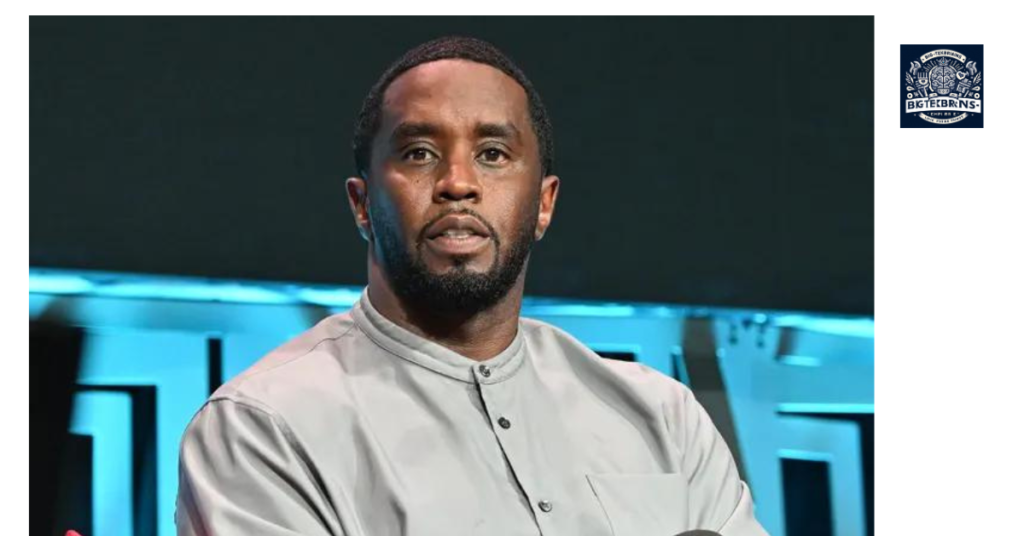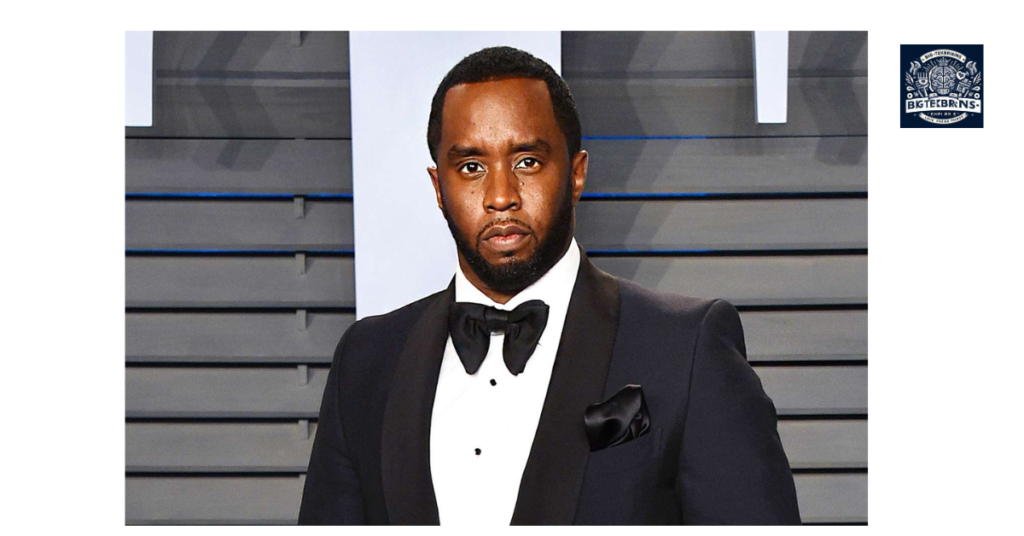BACKGROUND

Born Sean John Combs on November 4, 1969, in Harlem, New York City. Raised mainly in Mount Vernon, NY.
Started as an intern at Uptown Records before founding Bad Boy Entertainment in 1993. Combs worked with notable artists like Mariah Carey, Mary J. Blige, and Biggie Smalls. Released successful albums and expanded into acting and fashion.
INTRODUCTION
Sean “Diddy” Combs, one of the most influential figures in the music industry, is now facing some of the most serious legal challenges of his career. The legendary producer and rapper is embroiled in a criminal case involving allegations of racketeering conspiracy, sex trafficking by force, fraud or coercion, and transportation to engage in prostitution. If these charges are proven in court, Diddy could face a sentence ranging from 15 years to life imprisonment. This high-profile case has ignited a storm of public debate, with significant repercussions for his career, personal relationships, and the wider music industry.
Racketeering conspiracy:
refers to a crime in which individuals work together to engage in illegal activities as part of a larger criminal enterprise. It is governed by the Racketeer Influenced and Corrupt Organizations Act (RICO) in the United States. This law targets organized crime groups involved in a pattern of illegal activities such as fraud, bribery, drug trafficking, or extortion.
Sex trafficking by force:
refers to the illegal act of coercing, deceiving, or forcibly compelling an individual to engage in commercial sex acts against their will. It is a form of human trafficking and is considered a serious crime under both U.S. federal law and international law.
Arrest and Case Unveiled

Diddy’s arrest on September 16, 2024 in New York City, at the Park Hyatt Hotel in Manhattan came as a result of a multi-year investigation. According to reports, Authorities gathered evidence against Sean “Diddy” Combs through an extensive, multi-year investigation. The resources for the evidence came from several key actions:
Search Warrants: Raids were conducted at his homes in Los Angeles and Miami, where law enforcement officers seized numerous items, including AR-15 guns, large-capacity magazines, and over 1,000 bottles of baby oil and lubricant. The raids were instrumental in obtaining physical evidence related to the sex trafficking charges (UNILAD)(People.com).
Electronic Devices: Authorities also confiscated many digital devices, including 90 phones, laptops, cloud storage accounts, and 30 storage devices. This collection of electronic evidence provided access to communications, videos, and other crucial data that allegedly support the charges(UNILAD)(People.com).
Subpoenas: Over 300 grand jury subpoenas were issued to various entities, including tech companies and financial institutions. These subpoenas compelled companies to turn over digital and financial records related to Combs, aiding the investigation(UNILAD)(People.com).
A grand jury subpoena:
is a legal order requiring individuals or entities to provide evidence or testimony to a grand jury, which is a group of citizens convened to investigate criminal activity and determine whether there is enough evidence to bring formal charges (an indictment) against a person or organization.
When it’s mentioned that 300 grand jury subpoenas were issued, it meant that investigators sent out 300 legal orders during an investigation, demanding documents, records, or testimony from various parties. These subpoenas are used to gather evidence such as emails, financial records, phone logs, or any other material relevant to the case.
Large-scale criminal investigations, like the one involving Sean “Diddy” Combs, issuing hundreds of subpoenas suggests a thorough and widespread effort to collect as much information as possible from different sources to build a strong case. The recipients of these subpoenas could be tech companies, banks, associates, or anyone who might possess critical information related to the investigation.
AR-15 guns

The AR-15 is a lightweight, semi-automatic rifle originally designed for military use but is now popular among civilians. It was developed by Armalite (hence the “AR” in AR-15, which stands for “Armalite Rifle”). The civilian version of the AR-15 is similar to military rifles like the M16 and M4 but is semi-automatic, meaning it fires one bullet each time the trigger is pulled, unlike fully automatic weapons that continue firing as long as the trigger is held.
Storage devices
refers to various types of digital storage media, such as hard drives, USB flash drives, memory cards, and external drives, that are capable of holding electronic data. These devices are often used to store files, documents, photos, videos, and other digital content. In the context of an investigation or legal case, seizing storage devices means that authorities are gathering potential evidence, such as emails, documents, and other digital records, that may be relevant to the case.
Baby oil and lubricants

are substances used to reduce friction on the skin and provide smoothness, often for personal care, medical, or intimate purposes:
- Baby Oil: Typically made from mineral oil, it is commonly used to moisturize and soften the skin, especially for infants, but can also be used by adults for skincare and massage purposes.
- Lubricants: These are gels, liquids, or oils used to reduce friction between surfaces. In a medical or personal care context, they are often used during physical examinations, medical procedures, or intimate activities to enhance comfort.
Cloud storage accounts
are online services that allow users to store and access data over the internet. Instead of saving files on a physical hard drive, users upload their data—such as documents, photos, videos, or other digital content—to remote servers maintained by cloud storage providers. Popular cloud storage providers include Google Drive, Dropbox, and OneDrive.
Laptop
is a portable personal computer designed for mobile use. It combines the features of a desktop computer with the advantage of portability, allowing users to carry it around and use it in various locations. Laptops typically have a built-in screen, keyboard, touchpad (or trackpad), and rechargeable battery.
Media and Public Reaction
Diddy’s arrest sent shockwaves through the entertainment world and the public. Social media was flooded with commentary, as celebrities who once shared close relationships with him, such as Usher, Justin Bieber, and Jay-Z, either remained silent or publicly distanced themselves. The music industry’s reaction underscored the growing role that social media plays in shaping public opinion, as fans and critics alike weighed in on Diddy’s situation.
The allegations also led to a renewed discussion about systemic abuse within the entertainment world. Many questioned how such activities could have gone unchallenged for so long. This raised concerns about whether Diddy was an isolated case or if his arrest shed light on a more widespread problem in the music industry.
Legal Proceedings and Defense
Diddy has categorically denied all accusations. His legal team has labelled the lawsuits as baseless attacks aimed at tarnishing his reputation. His lawyers have emphasized that Diddy has cooperated with the authorities throughout the investigation. They are seeking his release on bail, arguing that Diddy is not a flight risk and that the charges against him are exaggerated or entirely false.
However, prosecutors have insisted that Diddy should remain in custody until the trial, citing the risk that he could flee. Legal arguments surrounding the case have highlighted the complexities of prosecuting high-profile individuals, especially when accusations involve serious crimes like racketeering and sex trafficking.
Sean Combs’ Legal Team:
Sean “Diddy” Combs’ legal team for the ongoing sex trafficking investigation is led by Aaron Dyer, a well-known attorney. Dyer has been representing Diddy and addressing the legal issues surrounding the allegations. He has publicly stated that Combs is cooperating with authorities and has dismissed the accusations as baseless.

Allegations: An Unsettling Timeline
Allegations of misconduct have followed Diddy for years, dating back to the 1990s, though few reached the courts. The current charges paint a disturbing picture of coercion and abuse, with victims coming forward to describe how Diddy allegedly forced them into sexual acts using drugs and threats. It is claimed that these encounters were recorded and later used to exert control over the victims .
Recent civil lawsuits against Diddy have added fuel to the fire, with new accusations surfacing regularly. In one such case, Diddy is accused of rape, expanding the already extensive list of charges against him. These ongoing allegations suggest a troubling pattern of behaviour that spans several decades.
Broader Implications for the Music Industry
Diddy’s legal troubles come at a time when the music industry is under increasing scrutiny for its handling of power dynamics and exploitation. In recent years, other high-profile individuals have faced similar accusations, forcing the industry to confront uncomfortable truths about abuse and misconduct. If Diddy is convicted, his fall could serve as a pivotal moment in the industry, potentially leading to a broader reckoning.
The complexities of prosecuting such cases also demonstrate the legal system’s challenges in holding powerful figures accountable. The severity of Diddy’s charges highlights the need for detailed and well-documented evidence, and authorities appear to have built a substantial case. The upcoming trial will not only be a test for Diddy’s defense team but also a moment of reflection for the music industry and society as a whole.
Conclusion
The allegations against Sean “Diddy” Combs have rocked both the music industry and the public. With the legal battle ahead, the outcome could redefine not only Diddy’s legacy but also the broader accountability standards in the music world. Whether convicted or acquitted, this case marks a pivotal moment in the ongoing conversation about power, fame, and responsibility in entertainment.
As always, Diddy is presumed innocent until proven guilty. The world will be watching as this high-stakes legal drama unfolds, with profound implications for one of music’s biggest names.
FAQs
What are the charges against Sean “Diddy” Combs?
Diddy faces serious charges of racketeering conspiracy, sex trafficking by force, fraud, or coercion, and transportation to engage in prostitution. If convicted, he could face a sentence of 15 years to life imprisonment.
What evidence has been gathered against Diddy?
Authorities have collected data from over 90 devices, including phones, laptops, and storage devices. They also found firearms and a significant number of lubricants, which have been presented as evidence in the sex trafficking charges.
How has the music industry reacted to the charges?
The reaction has been largely muted, with many of Diddy’s celebrity friends distancing themselves. This case has reignited debates about abuse and exploitation in the music industry.
What are Diddy’s legal defences?
Diddy’s legal team is pushing for bail, maintaining that the charges are false and that Diddy is not a flight risk. His lawyers argue that the lawsuits are opportunistic attempts to ruin his reputation.
What are the long-term implications of the case?
If convicted, Diddy’s case could lead to significant reforms in how the music industry deals with allegations of abuse and misconduct. The case underscores the critical role of media coverage and public opinion in shaping legal outcomes.

